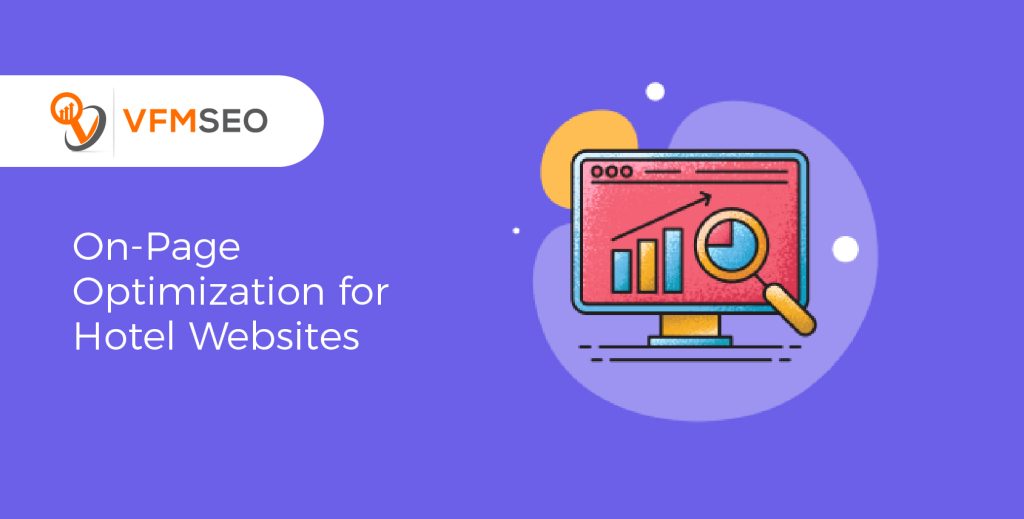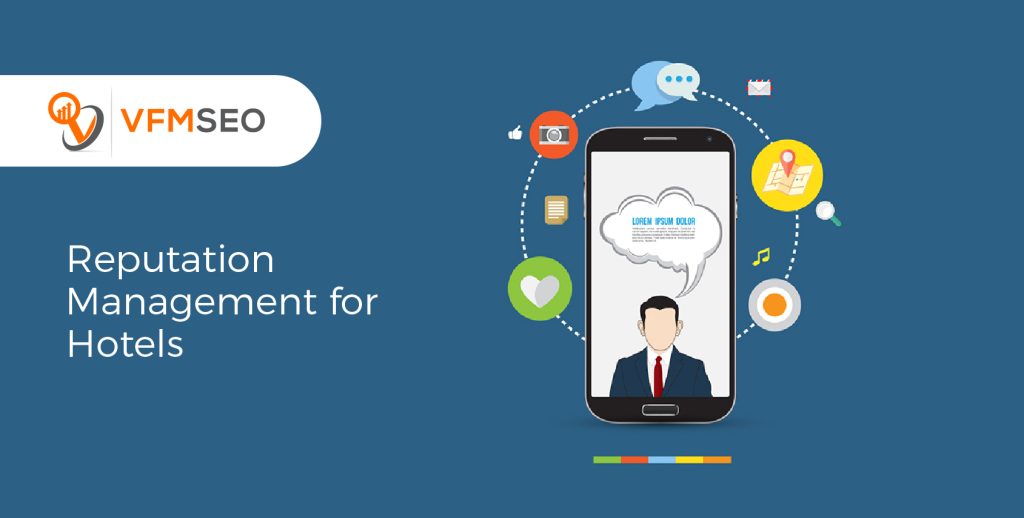
SEO Services for Hotels: Enhancing Online Visibility and Bookings
Search engine optimization (SEO) has become a crucial aspect of digital marketing for hotels. In this era of technology, the success of a hotel’s online presence heavily relies on its visibility in search engine results. To ensure maximum visibility and increased organic traffic, hotels are increasingly turning to professional SEO services.
This article will explore the various SEO strategies that can be employed to enhance the online visibility of hotel websites. The focus will be on on-page optimization, local SEO, content marketing, link building, and reputation management. By implementing these strategies, hotels can improve their search engine rankings, attract more potential guests, and ultimately increase their revenue.
On-page optimization involves optimizing the website’s structure, content, and metadata to make it more search engine-friendly.
Local SEO, on the other hand, targets geographical searches to drive relevant traffic to the hotel’s website.
Content marketing strategies aim to create and distribute valuable content to engage and attract potential guests.
Link building involves acquiring high-quality backlinks to improve the website’s authority and visibility.
Lastly, reputation management strategies help hotels maintain a positive online reputation, thereby building trust and credibility among potential guests.
Overall, this article will provide valuable insights into the importance of SEO services for hotels and how they can optimize their online presence to stay ahead in the competitive hospitality industry.
On-Page Optimization for Hotel Websites

On-Page Optimization for hotel websites involves implementing strategic techniques to optimize the content and structure of hotel websites, aiming to improve their search engine rankings and enhance overall user experience.
One essential aspect of On-Page Optimization is website design. A well-designed hotel website should have a clean and user-friendly layout that is visually appealing and easy to navigate. The website’s design should also be responsive, ensuring that it displays properly on different devices, such as desktop computers, tablets, and smartphones.
Keyword research is another crucial component of On-Page Optimization for hotel websites. By conducting thorough keyword research, hoteliers can identify the most relevant and popular search terms used by their target audience. These keywords can then be strategically incorporated into the website’s content, meta tags, headings, and URLs. By optimizing the website with the right keywords, hotel websites can improve their visibility in search engine results pages, attracting more organic traffic.
In addition to website design and keyword research, user experience plays a vital role in On-Page Optimization for hotel websites. The website should be designed with the user in mind, ensuring that it provides a seamless and enjoyable experience. This involves optimizing the website’s loading speed, as slow loading times can lead to high bounce rates and a negative user experience. Additionally, the website should have clear and concise content, relevant images, and easy-to-use booking forms to streamline the user journey.
Overall, On-Page Optimization for hotel websites encompasses various techniques such as website design, keyword research, and user experience enhancements. By implementing these strategies effectively, hotels can enhance their search engine rankings, attract more organic traffic, and ultimately provide a better user experience for their website visitors.
Local SEO for Hotels
Local SEO is a vital strategy for optimizing the online visibility and reaching a broader audience for establishments in the hospitality industry.
One crucial aspect of local SEO for hotels is maximizing conversions for online bookings. By implementing effective on-page optimization techniques, hotels can ensure that their websites are user-friendly, visually appealing, and provide relevant information to potential guests. This includes optimizing landing pages, creating compelling calls-to-action, and streamlining the booking process.
To stay ahead in the competitive hotel industry, it is important to keep up with the latest hotel SEO trends. This involves staying updated on search engine algorithm changes and adapting strategies accordingly. Some current trends include the use of voice search optimization, mobile optimization, and the integration of artificial intelligence and chatbots to enhance the user experience.
Another key element of local SEO for hotels is targeting the right audience through local search optimization. This involves optimizing the website for location-specific keywords and phrases, as well as utilizing online directories and review platforms to improve local visibility. It is also essential to create and maintain a presence on relevant social media platforms, engage with customers, and encourage positive reviews.
Local SEO is a crucial strategy for hotels to optimize their online visibility and attract a wider audience. By focusing on maximizing conversions for online bookings, staying ahead of hotel SEO trends, and targeting the right audience through local search optimization, hotels can significantly improve their online presence and ultimately increase their bookings and revenue.
Content Marketing Strategies for Hotels

Content marketing strategies play a pivotal role in enhancing online visibility and fostering meaningful connections with potential guests in the hospitality industry.
One effective strategy for hotels is social media marketing, which involves creating and sharing engaging content on various social media platforms. By leveraging social media platforms such as Facebook, Instagram, and Twitter, hotels can reach a wider audience and showcase their unique offerings. They can share visually appealing images, videos, and stories that highlight the hotel’s amenities, services, and local attractions. Engaging with followers through comments, likes, and shares can help build a loyal online community and generate interest from potential guests.
Another content marketing strategy for hotels is influencer collaborations. Influencers are individuals who have a significant following on social media and can influence the opinions and decisions of their followers. By partnering with relevant influencers, hotels can reach a larger audience and gain credibility. Influencers can create content featuring the hotel, such as reviews, experiences, and recommendations, which can generate interest and attract potential guests.
Email marketing is also an effective content marketing strategy for hotels. By collecting email addresses from past, current, and potential guests, hotels can send personalized and targeted emails. These emails can contain information about special promotions, events, and personalized offers. Email marketing allows hotels to nurture relationships with guests and keep them engaged with relevant and timely information.
Content marketing strategies such as social media marketing, influencer collaborations, and email marketing are essential for hotels to enhance their online visibility and connect with potential guests. By creating and sharing engaging content through these channels, hotels can attract a wider audience, build a loyal online community, and generate interest that can lead to bookings and revenue.
Link Building for Hotel Websites
Link building is a crucial aspect of hotel website optimization, as it involves acquiring high-quality external links from reputable sources to improve search engine rankings and increase organic traffic.
One effective strategy for link building in the hotel industry is guest outreach. By reaching out to guests who have stayed at the hotel and asking them to provide a link to the hotel’s website in their online reviews or blog posts, hotels can not only gain valuable backlinks but also improve their online reputation. This strategy helps to build trust and credibility, as potential guests are more likely to book a hotel that has positive reviews and endorsements from previous guests.
Another effective link building strategy is influencer collaborations. Hotels can partner with influential bloggers, travel writers, or social media influencers who have a large following and a strong online presence. By collaborating with these influencers, hotels can gain exposure to a wider audience and generate valuable backlinks from their websites or social media profiles. This can significantly improve the hotel’s visibility in search engine results and drive more organic traffic to the website.
In addition to guest outreach and influencer collaborations, social media advertising can also be an effective means of link building for hotel websites. By running targeted advertising campaigns on platforms such as Facebook, Instagram, or Twitter, hotels can reach a larger audience and drive traffic to their website. This can not only generate more bookings but also increase the likelihood of other websites linking back to the hotel’s website, as it demonstrates the hotel’s popularity and relevance in the industry.
Link building is an essential component of hotel website optimization. Strategies such as guest outreach, influencer collaborations, and social media advertising can help hotels acquire high-quality external links, improve search engine rankings, and increase organic traffic. By implementing these strategies, hotels can enhance their online visibility and ultimately attract more guests to their establishments.
Reputation Management for Hotels

Reputation management plays a crucial role in shaping the perception of hotels by managing online reviews and feedback from guests, ensuring a positive image and fostering trust among potential customers.
In today’s digital age, online reviews have become one of the most influential factors for consumers when making decisions about hotels. Therefore, it is essential for hotels to actively monitor and manage their online reputation.
Guest satisfaction is a top priority for hotels, and online reviews provide valuable insights into the level of satisfaction experienced by guests. Positive online reviews can enhance a hotel’s reputation and attract more potential customers. On the other hand, negative reviews can have a detrimental impact on a hotel’s image and deter potential guests.
By actively monitoring and responding to online reviews, hotels can address any issues or concerns raised by guests, demonstrating their commitment to guest satisfaction and resolving problems in a timely manner.
Managing online reputation involves various strategies and techniques. Hotels need to encourage guests to provide feedback and reviews, as well as monitor and respond to those reviews on different platforms such as review websites, social media, and travel forums.
It is important to address both positive and negative reviews, thanking guests for their positive feedback and addressing any concerns raised in negative reviews. This not only shows potential customers that the hotel values guest feedback but also provides an opportunity to rectify any issues and improve the overall guest experience.
Reputation management is crucial for hotels to maintain a positive online reputation and foster trust among potential customers. By actively managing online reviews and guest feedback, hotels can enhance their image, attract more customers, and ensure guest satisfaction.
The power of online reviews cannot be underestimated, and hotels that prioritize reputation management stand to benefit in the highly competitive hospitality industry.
FAQs
How can hotels optimize their website’s loading speed?
Hotels can improve their website’s loading speed by focusing on website design, reducing image size, and optimizing code. These strategies enhance user experience, decrease bounce rates, and improve search engine rankings.
What are some effective ways for hotels to improve their online visibility in local search results?
Local SEO tips for hotels include optimizing website content with relevant keywords, creating and maintaining a Google My Business profile, obtaining positive online reviews, ensuring NAP consistency, and utilizing online directories and local listings. Implementing effective online marketing strategies is crucial for increasing online visibility for hotels.
How can hotels create engaging and shareable content to attract more potential guests?
Creating visual content is an effective strategy for hotels to attract potential guests. By leveraging user-generated content and utilizing social media platforms, hotels can engage their audience and increase their chances of sharing the content, ultimately expanding their reach and attracting more potential guests.
What are some effective strategies for hotels to acquire high-quality backlinks from authoritative websites?
Effective strategies for hotels to acquire high-quality backlinks from authoritative websites include guest blogging opportunities, influencer collaborations, and social media partnerships. These tactics can enhance a hotel’s online visibility and reputation, attracting more potential guests.
How can hotels effectively respond to negative online reviews and manage their online reputation?
Hotels can effectively manage their online reputation by implementing strategies for online reputation management, handling negative reviews, and customer feedback management. This involves promptly addressing negative reviews, offering solutions, and actively seeking and responding to customer feedback.
Conclusion
In conclusion, implementing effective SEO strategies is essential for hotels to improve their online visibility and attract more customers.
On-page optimization ensures that the hotel website is optimized for search engines, while local SEO helps hotels target a specific geographic area.
Content marketing strategies help hotels create valuable and engaging content for their audience, and link building increases the website’s authority.
Lastly, reputation management is crucial for managing online reviews and maintaining a positive brand image.

